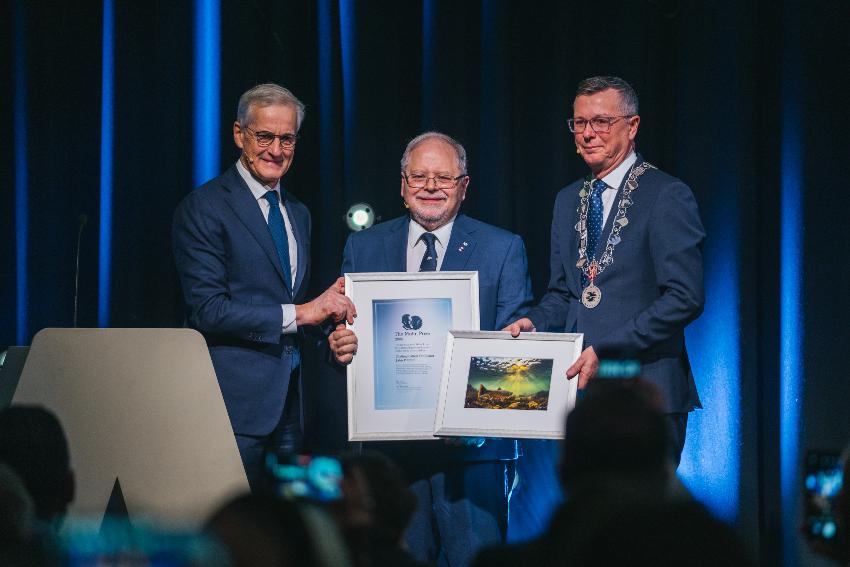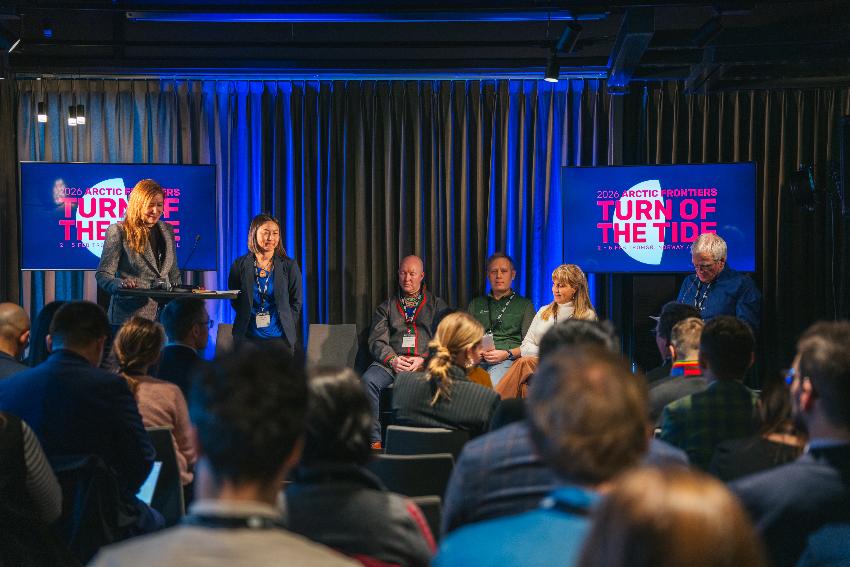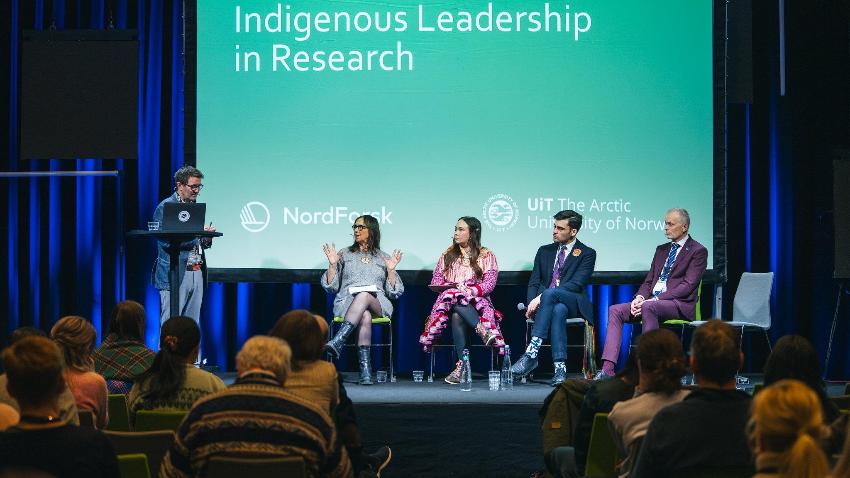New training program for younger polar researchers
UiT is a partner in a newly started EU-funded project called POLARIN, which aims to enhance the utilization of research resources in the Arctic and Antarctica. UiT will contribute to the training of younger polar researchers.
In recent decades, there have been significant changes in both the Arctic and Antarctica, in terms of ice melt and changes in both ocean and land masses. On March 1st, a comprehensive EU-funded project will start, aimed at strengthening research that can provide reliable data on the extent of climate change at the poles and the consequences it entails.
The project is called POLARIN (Polar Research Infrastructure Network). It enables 50 partner institutions from European countries, as well as the USA, Canada, and Chile, to collaborate on sharing resources and expertise related to 64 infrastructure facilities in the Arctic and Antarctica.
The project is coordinated by the Alfred Wegener Institute, which plays a leading role in polar research in Germany. The Norwegian partners are NILU, SIOS, UiT, and the Norwegian Polar Institute. The EU is providing 14.6 million euros to the project over a five-year period.
UiT's contribution to the project
In the POLARIN project, emphasis is placed on training researchers in a variety of areas related to polar research. This may involve planning fieldwork, sustainable use of research infrastructure and technological equipment, as well as the collection and handling of data and safety training.
With these measures, it will be possible to train a new generation of polar researchers to make the most of the infrastructure for research purposes.
In total, UiT receives 180,000 euros to implement various measures in POLARIN. Some of the funds go to the Department of Geosciences, which will contribute by making sample materials from Arctic areas available to polar researchers in the international network.
Polar research is expensive, so it's important that researchers can get the most out of fieldwork. This means that everyone must learn to conduct research in a safe, efficient, and sustainable manner.
But the majority of the EU funds will be used for training younger researchers in the use of research infrastructure. In this work, Sarah Marie Strand, senior advisor at UiT and director of APECS (Association of Polar Early Career Scientists), plays a key role. APECS is also considered part of the University Library at UiT.
The target groups for the training, which will be conducted in collaboration with the University of Copenhagen, are PhD candidates, postdoctoral fellows, technicians, and engineers. The training package will include education in planning research expeditions, field safety, and scientific instrumentation and data collection.
The training will be relevant for many different disciplines and will be open to all interested users, not just POLARIN participants.
"Polar research is expensive, so it's important that researchers can get the most out of fieldwork. This means that everyone must learn to conduct research in a safe, efficient, and sustainable manner. Naturally, it is ideal that early career researchers can already work in this way from the beginning of their careers," says Strand.
Infrastructure with high utility value
Infrastructure made available to an international research network through POLARIN includes research stations, archives of ice and sediment samples, research vessels, and icebreakers located at both poles.
Norway offers access to the Sverdrup and Troll research stations (Ny-Ålesund in Svalbard and Jutulsessen in Queen Maud Land in Antarctica), and also the research vessel Kronprins Haakon.
With such resources, the interdisciplinary work of an international network of researchers can be strengthened. This can improve observational and modeling capacity within a wide range of disciplines, from marine studies to atmospheric research. With POLARIN, it will also be possible to enhance online services, data access, and interoperability between systems.
Strand points out that the new training program will be particularly useful at research stations like Troll in Antarctica.
"The training we offer will help young researchers to best utilize this type of research station to conduct groundbreaking research," emphasizes Strand.
-
Arkeologi - master
Varighet: 2 År -
Peace and Conflict Transformation - master
Varighet: 2 År -
Geosciences - master
Varighet: 2 År -
Biology - master
Varighet: 2 År -
Technology and Safety - master
Varighet: 2 År -
Physics - master
Varighet: 2 År -
Computational chemistry - master
Varighet: 2 År -
Law of the Sea - master
Varighet: 3 Semestre -
Biologi - bachelor
Varighet: 3 År -
Nordisk - årsstudium
Varighet: 1 År -
Luftfartsfag - bachelor
Varighet: 3 År -
Pedagogikk - bachelor
Varighet: 3 År -
Arkeologi - bachelor
Varighet: 3 År -
Likestilling og kjønn - årsstudium
Varighet: 1 År -
Historie - bachelor
Varighet: 3 År -
Geovitenskap- bachelor
Varighet: 3 År -
Samfunnssikkerhet - bachelor
Varighet: 3 År -
Samfunnssikkerhet - master
Varighet: 2 År -
Kunst - bachelor
Varighet: 3 År -
Kunsthistorie - master
Varighet: 2 År -
Religionsvitenskap - årsstudium
Varighet: 1 År -
Romfysikk, sivilingeniør - master
Varighet: 5 År -
Sosialantropologi - bachelor
Varighet: 3 År -
Bærekraftig teknologi, ingeniør - bachelor
Varighet: 3 År -
Historie - master
Varighet: 2 År -
Filosofi - bachelor
Varighet: 3 År -
Anvendt fysikk og matematikk, sivilingeniør - master
Varighet: 5 År -
Barnevernsarbeid - master
Varighet: 2 År -
Forfatterstudium 2 - årsstudium
Varighet: 1 År -
Fine Art - master
Varighet: 2 År -
Barnevern - bachelor
Varighet: 3 År -
Arctic Nature Guide - one year programme
Varighet: 1 År -
Sosialt arbeid - bachelor
Varighet: 3 År -
Arktisk friluftsliv og naturguiding - bachelor
Varighet: 3 År -
Arktisk friluftsliv - årsstudium
Varighet: 1 År -
Grunnskolelærerutdanning for 1.-7. trinn - master
Varighet: 5 År -
Kunsthistorie - årsstudium
Varighet: 1 År -
Governance and Entrepreneurship in Northern and Indigenous Areas - master
Varighet: 4 År -
Vernepleie - bachelor
Varighet: 3 År -
Internasjonal beredskap - bachelor
Varighet: 3 År -
Barnevern - bachelor
Varighet: 3 År -
Vernepleie - bachelor
Varighet: 4 År -
Landskapsarkitektur - master
Varighet: 5 År -
Grunnskolelærerutdanning for 5.-10. trinn - master
Varighet: 5 År -
Kvensk og finsk - bachelor
Varighet: 3 År -
Nordisk språk og litteratur - bachelor
Varighet: 3 År -
Russisk og russlandsstudier - bachelor
Varighet: 3 År -
Ph.d.-program i naturvitenskap
Varighet: 3 År -
Russisk og russlandsstudier - master
Varighet: 2 År -
Environmental Law - master
Varighet: 2 År



